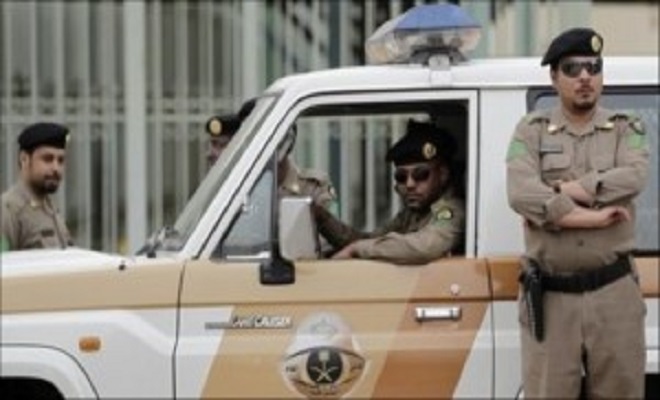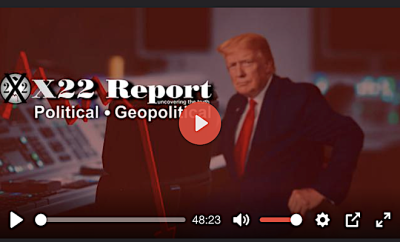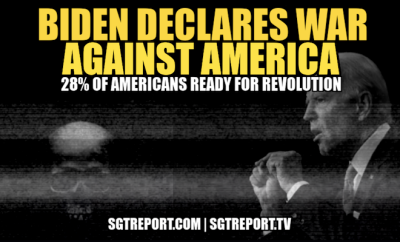 NEO.org
NEO.org
Politics
A Growing Crisis Within Saudi Arabia
by , NEO:
The viscousness of the Saudi regime’s assault against the people of Yemen is largely being ignored by western media. The Saudi regime has unleashed white phosphorous, a deadly chemical weapon, into civilian areas. The Saudi regime has bombed hospitals, schools, power plants, and other civilian infrastructure. The death toll has already surpassed 4,000 people, and is constantly rising, with the number of critically wounded nearing 10,000.
Saudi Arabia’s viscous, criminal attack on the people of Yemen is illegal under all standards of international law. Yemen has not attacked or in any way threatened Saudi Arabia. Saudi Arabia has no justifiable reason for unleashing such horrific terrorism on the people of Yemen.
The Saudi attack on Yemen has taken place in response to a democratic uprising against a phony President. Mansour Hadi ran un-opposed in the last election as the official Saudi supported candidate.
The coalition of anti-Saudi forces in Yemen, including Ansarullah, Sunnis, secularists, Marxists, and Baathists, is taking control. If they do, Yemen’s vast untapped oil resources will be theirs. Yemen could become, as US commentators openly fear, “another Iran” with publicly controlled oil resources, developing independently, free from the control of western bankers.
However, in addition to control of Yemen’s oil resources, Saudi Arabia is also driven to launch its vicious attack on Yemen because it faces internal crises of its own.
Instability Within Saudi Borders
The recent drop in oil prices has not really hurt King Salman or anyone else in his small class of wealthy aristocrats. They continue to live in absolute splendor. However, beyond the circles of power in Saudi Arabia, many people are feeling a sharp economic pinch. 35% of Saudi workers are now unemployed.
The Saudi regime professes the religion of Whabbiaism, a form of Sunni Islam. Whabbiaism is the official state religion of the Saudi regime. However, the sectors of the Saudi Kingdom that contain the country’s large oil deposits are largely populated by people who practice another religion, Shia Islam.
The Shia community in Saudi Arabia and the various regimes aligned with it face extreme discrimination. Shias attend segregated schools, and even in their own schools they are forbidden from having Shia principals. Saudi schools teach children that Shias are apostates, and that Shia Islam is a “Jewish conspiracy” against the Saudi King.
Leaders of the Shia community are frequently executed for trivial offenses like “insulting the King.” The policies of the Saudi regime have been called “religious apartheid” in testimony before the US congress.
Shias are confined by law in Saudi Arabia to only work in jobs involving manual labor. Many Shias reside in the areas with large oil deposits, and they work extracting Saudi oil from the ground. They have no union representation on the job, and they face extreme repression if they ever try to challenge the horrendous working conditions.
Saudi Arabia also has a large population of guest workers from places like Africa and Asia. These workers also face super exploitation, and conditions described as “modern day slavery” as they labor on behalf of the Saudi elite. Saudi Arabia shocked the world in recent years by executing some of these guest workers, foreign nationals, without so
much as notifying their countries of origin.
The Saudi Army is mostly made up of guest workers who are either hired as mercenaries or forcibly conscripted into the military. As the thousands of Bangladeshis and Nepalis and other nationalities, wearing Saudi uniforms line up on the Yemeni border, preparing for a possible invasion, reports are surfacing of massive defections. It appears that
many of the super-exploited impoverished non-Saudi guest workers have no desire to fight on behalf of their Saudi masters.
The recent economic crunch has sparked a rise of dissent among the Shia workers in the oil fields. These already low paid workers are also seeing their wages and hours decrease due to the oil price drop. They have rebelled in the past, and the situation between them and the Saudi government has become even more tense since the attacks on Yemen
began.
A New Middle East?
The Saudi military, though it has the fourth largest budget in the entire world, may not have the capacity to wage an effective ground war in Yemen. The growing dissent within the ranks of its infantry and growing instability among the population of the oil rich Shia regions, could soon boil over into a full blown domestic crisis for the Saudi regime.
The Saudi regime’s primary target in Yemen is the Ansarullah organization. This is a group of Zaidi Shia revolutionaries who admire the Bolivarians in Latin America and are inspired by the Iranian revolution of 1979. They have armed themselves, and now they are at the center of a broad united front in Yemeni society.
Already, reports are surfacing that the Shia workers within Saudi Arabia are expressing sympathy with their Zaidi brothers in Ansarullah.
As the ruthless attacks on Yemen continue, the leaders of Saudi Arabia must be in a panic. On their minds is the question: “What is coming next?”
The Shia community, who have faced years of discrimination and humiliation, could soon explode with anger.
If the Saudi military orders a ground invasion of Yemen, it could see its military fall to pieces. The reports of mass defections and desertion among Saudi troops are already alarmingly high, before any ground invasion has taken place.
Yemeni society is locked, loaded, and united. Armed groups in almost every neighborhood are ready to wage a full blown fight against Saudi ground troops. 342,000 people have enlisted in the People’s militias. “People’s Committees” have been established across the country to coordinate the revolutionary forces.
The Saudi monarchy, the autocratic repressive agent of Wall Street oil corporations in the Middle East, is seeing its attack on Yemen go very differently than was planned. Yemen is not becoming further fragmented and divided. Rather than the Ansarullah organization and their allies being crushed, many are realizing that it could soon be Saudi Arabia that falls into complete chaos.
The fact that King Salman cancelled his trip to the White House may be indicative of a higher level of confusion and disagreement behind closed doors. The US government may soon begin trying to distance itself from their Saudi puppets, as they did after the fall of Hosni Mubbarack in Egypt.
I’m forced to think of insensitive words of former US Secretary of State Rice, as I ponder the huge potential of the present moment. The situation in Yemen could really mean the birth of “a new middle east.”
Caleb Maupin is a political analyst and activist based in New York. He studied political science at Baldwin-Wallace College and was inspired and involved in the Occupy Wall Street movement, especially for the online magazine “New Eastern Outlook”.
First appeared:http://journal-neo.org/2015/06/07/a-growing-crisis-within-saudi-arabia/












